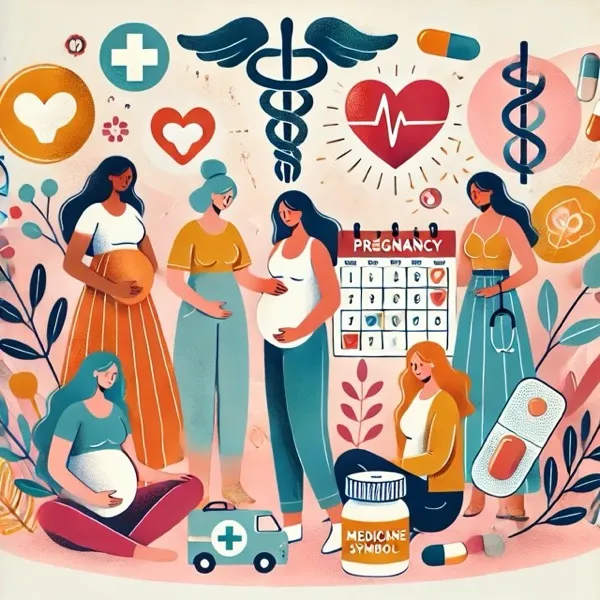Hey there! Today I’m diving into a super important topic for those of us navigating autoimmune rheumatic diseases (ARDs) and pregnancy. Pregnancy can be a whirlwind for anyone, but add an autoimmune condition into the mix, and it becomes a unique adventure—full of challenges, but also hope. Let’s talk about the latest insights from an Italian study called P-RHEUM.it, which tracked pregnancy outcomes for women living with ARDs.
What’s P-RHEUM.it All About?
The P-RHEUM.it study followed 866 pregnancies in 851 women with autoimmune rheumatic diseases across Italy from 2018 to 2023. This nationwide study was all about understanding how these pregnancies unfolded, what complications might arise, and what factors led to healthy outcomes for both moms and babies.
Some of the ARDs included were systemic lupus erythematosus (SLE), rheumatoid arthritis, and other connective tissue diseases. The women were enrolled at various rheumatology centers in Italy, and the study aimed to gather real-world data on everything from disease flares during pregnancy to infant health at birth. Essentially, they wanted to help answer the questions that many moms-to-be with ARDs have: “Can I have a healthy pregnancy?” and “What should I expect?”
Key Findings That Give Us Hope
The good news? Most of the pregnancies had positive outcomes! Here are some highlights:
- Live Births: A whopping 91.7% of pregnancies ended in live births, and the majority were born at full term (around 85%). That’s pretty encouraging, considering the added risks that ARDs can bring to pregnancy.
- Fewer Disease Flares: Only about 15% of pregnancies experienced a flare of the mother’s autoimmune condition during pregnancy. This suggests that with proper planning and tight monitoring, disease control can be maintained throughout those nine months.
- Medication Matters: Keeping autoimmune conditions in check was key. Many women used pregnancy-safe medications like hydroxychloroquine (44.8%) and glucocorticoids (28.2%) to help manage their conditions. These medications played a big role in minimizing complications and keeping both mom and baby safe.
Complications & Challenges
Of course, things weren’t always smooth sailing. About 30% of pregnancies faced some kind of obstetrical complication—ranging from pre-eclampsia (which affected about 2.3% of pregnancies) to perinatal complications in babies (like being small-for-gestational-age or other birth-related issues). There were also a few cases of congenital heart block (1.3%) in babies whose mothers had anti-Ro/SSA antibodies. While these numbers might sound concerning, it’s important to remember that these rates are often comparable to the general population when ARDs are managed well.
Emotional Health Matters Too
Another interesting aspect of this study was looking at moms’ mental health after birth. Using the Edinburgh Postnatal Depression Scale, they found that 21.5% of women experienced emotional distress or signs of postnatal depression. If you’re managing a chronic condition, don’t forget that mental health is just as important as physical health. It’s okay to ask for help, and it’s crucial to have a support system around you during and after pregnancy.
Why This Study Matters
So, why should we care about this? Well, the P-RHEUM.it study gives us real-world evidence that pregnancy is absolutely possible for women with autoimmune conditions—and often with outcomes comparable to those without ARDs. With good preconception planning, pregnancy-compatible medications, and a multidisciplinary team keeping an eye on both mom and baby, the journey to motherhood can be a safe and successful one.
These findings are a great reminder that being proactive and well-informed makes all the difference. If you or someone you know is considering pregnancy while managing an autoimmune condition, know that success stories are out there. There are dedicated healthcare providers who want to support you every step of the way.
Let’s Keep the Conversation Going
Have any questions or experiences you’d like to share about pregnancy and autoimmune conditions? Drop a comment below—let’s learn from each other and keep empowering this community!
Until next time, take care and keep advocating for your health. Remember, knowledge is power, and you deserve all the support and information out there to help make your dreams a reality.
References:
